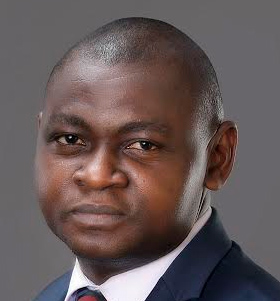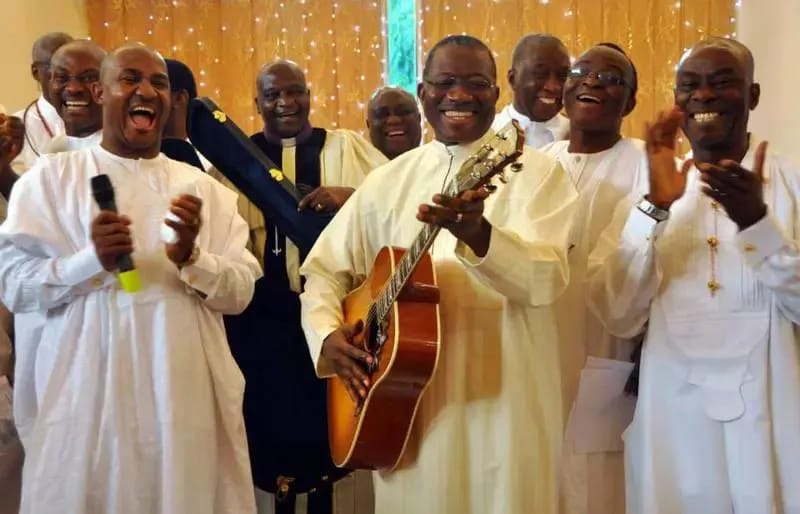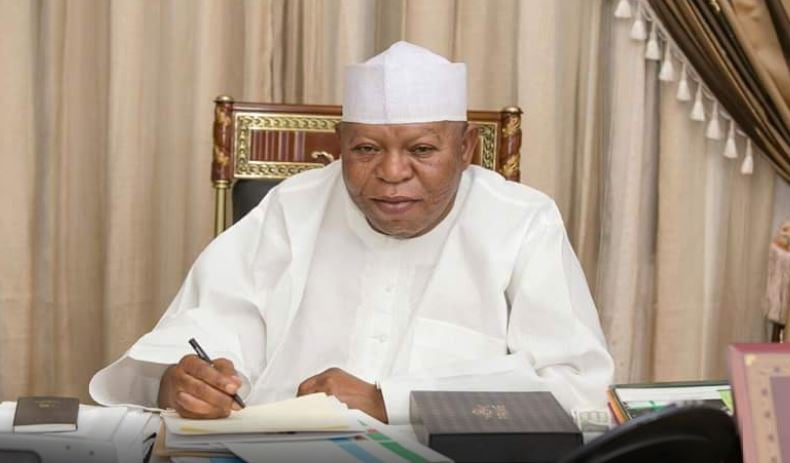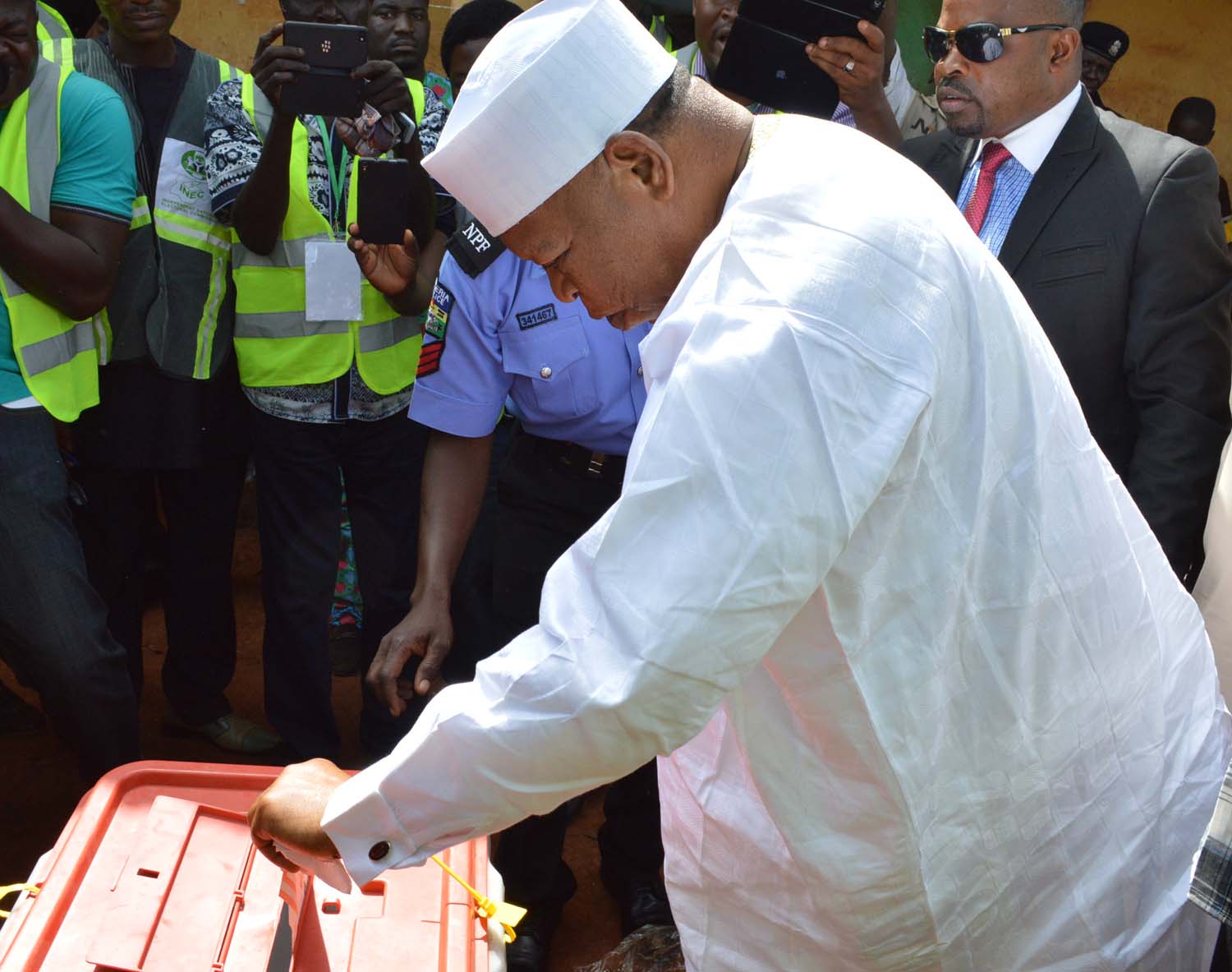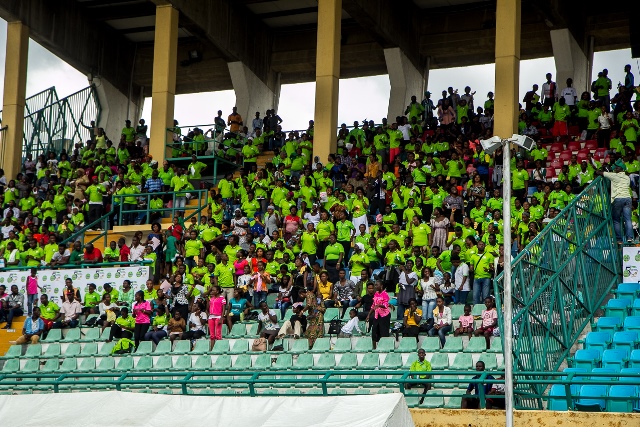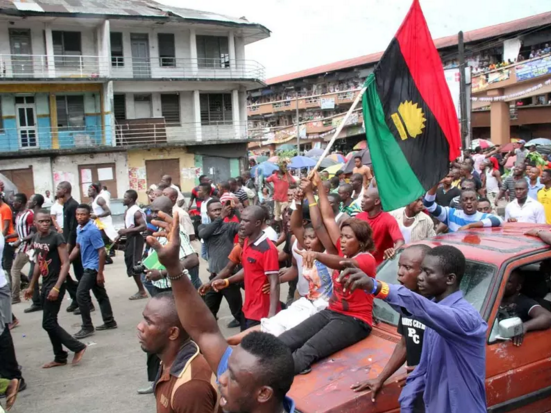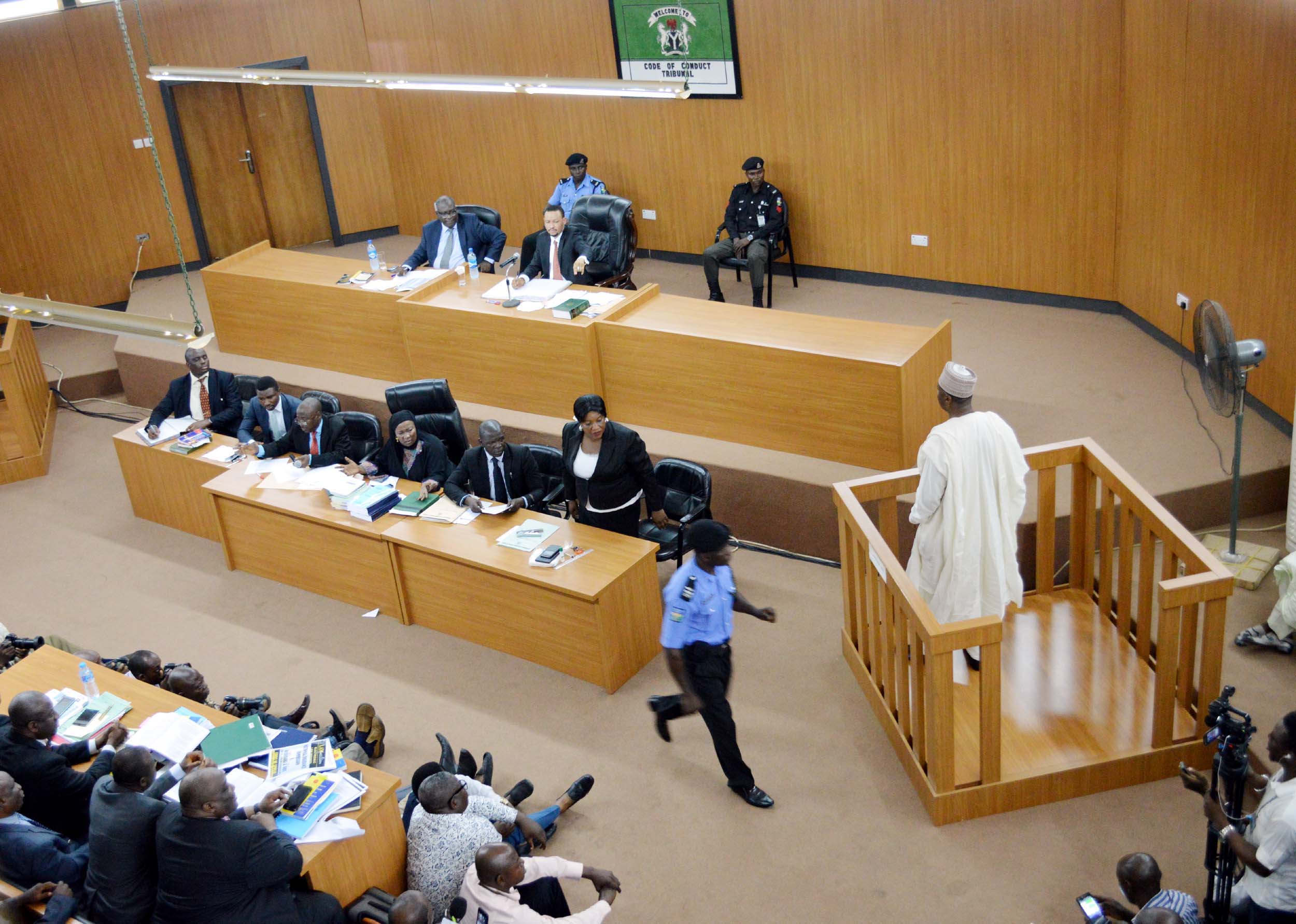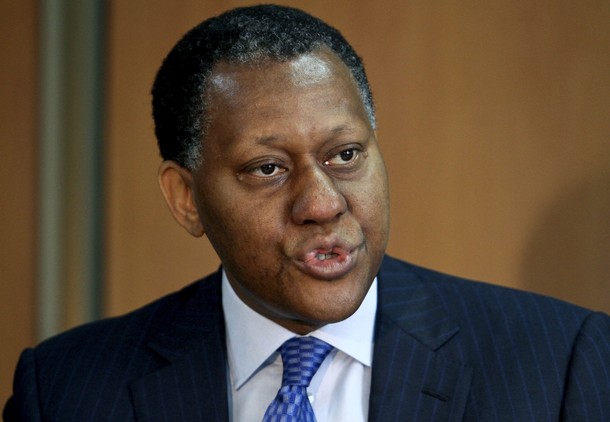Dr. Goodluck Jonathan, former Nigerian President, clocked 58 years on Friday, November 20. The day was another opportunity for his friends and well-wishers to celebrate and wish him more years of good health and service to humanity. But the difference this year, compared to when Jonathan was in power, was that congratulatory adverts, in newspapers or on TV, were more or less non-existent. Perhaps some of his friends forgot the date or felt he was no longer in a position to grant them the patronage he gave them while holding the powerful office of the President hence such expense wasn’t necessary.
Anyways, whatever the reason, this is to be expected especially in a society like ours where there are far too many fair-weather friends who flock around leaders in power pretending to love them genuinely but only looking for ways to exploit such once-in-a-lifetime opportunity to feather their own nests and fill up their bank accounts. For political leaders like Jonathan with lots of patronage to dole out in office, it only gets worse. Meanwhile, the adulation of his supporters wasn’t lacking in the cyber space especially on facebook.
But that aside, I believe Jonathan’s 58th birthday provides an opportunity to re-examine the political legacy of this former President and draw out key lessons for us as a people, but most especially for all those currently in leadership positions in our country and those who will come after them, who are concerned about the legacies they leave for posterity.
To start with, when we look at his birth in 1957 to a humble Niger Delta family of canoe makers in the sleepy town of Otuoke, in Ogbia local government area in present day Bayelsa state, South-South Nigeria, Jonathan, the third child of late Lawrence Ebele Jonathan and Eunice Aye Jonathan, has no doubt attained heights his canoe-making parents would never have imagined.
Advertisement
Although many Nigerians knew little about him until circumstances conspired to ensure that he succeeded the late Diepreye Alamieyeseigha, a former Governor of Bayelsa state, after the latter was arrested in the United Kingdom in September 2005 on money laundering charges and eventually impeached by the Bayelsa State House of Assembly, Jonathan’s national breakthrough came few days after the PDP National Convention for the 2007 elections when he was selected as Vice Presidential candidate to Umaru Musa Yar’Adua in place of better known and more influential candidates like Obong Victor Attah, Donald Duke and Peter Odili.
Of course, the Yar’Adua/Jonathan ticket went on to win the elections albeit with allegations that it was rigged in PDP’s favour. The controversy that arose few months after Yar’Adua’s ascension to power due to his ill-health and eventual death, paved the way for Jonathan’s emergence as Acting President in 2010 and later substantive President.
Meanwhile, all through former President Yar’Adua’s crises, Jonathan won the admiration of Nigerians and the world for his calm disposition during that challenging period in our country’s history despite glaring efforts and provocative actions to undermine his position as Vice President by the kitchen cabinet of President Yar’Adua. Indeed, beyond having Patience as wife, it was clear Jonathan also has it as a virtue.
Advertisement
And so, from a crisis which had dangerously taken the country to the precipice of a major constitutional logjam emerged a leader whose good fortune would effectively become talking point in many homes, gatherings and communities within and outside Nigeria, and with it, creating the stuff legends are made of: That where others had struggled to get to high positions, Jonathan had gotten all his own on a platter of gold because of the good luck that had followed him from birth!
Repositioning INEC for Credible Elections in Nigeria
In his bid to live up to the expectations of Nigerians for a credible electoral umpire to be appointed in place of Professor Maurice Iwu, the sitting chairman of the Independent National Electoral Commission (INEC) at the time who was widely perceived to be corrupt and had brazenly aided large-scale rigging during the 2007 elections, Jonathan announced Attahiru Mahmoud Jega, a professor of political science, as the new INEC chairman. The appointment of Jega, a former President of the Academic Staff Union of Universities (ASUU) who many Nigerians perceived as a man of integrity, and whom Jonathan had never met before then, was well-received and widely applauded.
It remains a testament to the sincerity and commitment of the Jonathan administration to ensuring credible polls in Nigeria that INEC, under Jega’s leadership, successfully conducted the 2011 elections generally adjudged free and fair and far better than the 2007 elections, with no accusation of the incumbent’s interference in its operations. And even when the outcome of the 2015 Presidential elections did not favour him, Jonathan gladly conceded defeat even before the winner of the elections, the All Progressives Congress (APC)’s Muhammadu Buhari, was announced by INEC.
Milestones and Achievements
Advertisement
Some of Jonathan’s achievements while he was in office between 2010 and 2015 included the launch of the Power Sector Roadmap, one of his administration’s first activities after he was elected President, which was aimed at improving the electricity situation of the country.
The privatisation of the power sector and the wholesale rehabilitation of existing generation, transmission and distribution facilities all over the country, were to ensure that the power situation in the country got better. Had previous administrations taken the practical steps Jonathan’s administration took, the power situation in Nigeria would certainly have improved than its current position.
Although he assumed office at a period when the financial sector was in a mess, with the Capital Market in dire straits as a result of market meltdown while the banking sector was gasping for breath under heavy yoke of toxic assets, Jonathan pursued the reform of the markets with single-minded determination and gave the regulatory authorities the freedom and support they required to sanitize the system.
His administration also set the Capital Market steadfastly on the path to total recovery even as Nigerian banks also returned to profitability with the intervention of the Central Bank of Nigeria (CBN) and the Assets Management Company of Nigeria (AMCON). The banking sector was also well managed and cleaned up in the aftermath of the financial markets crises of 2008/2009. Jonathan’s government and his economic management team also successfully ensured that risks of future bank failures in Nigeria got reduced while the country’s financial market became a delight of international investors.
Advertisement
It is not a common occurrence for ruling parties to lose elections especially in Africa. Yet, under Jonathan, his party, the PDP lost elections in states like Edo, Nassarawa, Imo, Ogun, Oyo and Zamfara among others. The courts also ruled in favour of opposition parties in Osun and Ekiti states. Such judicial pronouncements were previously ignored especially by the administration of President Olusegun Obasanjo. Of course, while some elements in his own party were not happy or impressed by his acts, Jonathan’s conviction and position was that the will of all Nigerians most never be subverted if democracy would be deepened in the country. For him, it was one man, one vote, one woman, one vote, one youth, one vote!
Furthermore, his government, realising that cutting down on recurrent expenditure in the national budget cannot be done overnight, launched a gradual phased reduction and also put in place the Sovereign Wealth Fund (SWF) in line with best practices adopted by forward-thinking countries like Norway and Qatar. A seed capital of $1 billion was invested in the Fund. Jonathan also made efforts to ensure that gas was available for both domestic and industrial use, as well as for power generation across the country.
Advertisement
Moreover, under his government, there was a more liberalised environment for freedom of association and as well freedom of expression in the country. His government’s record in this regards, beats that of previous administrations by several miles and on several fronts. He also signed the Freedom of Information (FOI) Bill into Law.
All through the years Jonathan spent in power, there was no record of anyone arrested or murdered for expressing his opinions against his government. And even though he is hardly praised or commended for this, his gentlemanly approach and uncommon tolerance for dissenting views, even abuses against his person and family as a leader with enormous executive powers, is second to none.
Advertisement
Jonathan once asserted while in office that he was the most abused President in the world. Surprisingly, and most impressively, he took the insults maturely. Of course, there are former Presidents of the country whom Nigerians, till date, perceive as having silenced their opponents by killing or jailing them when they were in power! Jonathan’s name can’t be mentioned in such group.
In Education, the former President launched and promoted the Bring Back the Book Initiative to revive and encourage reading among school children and the Nigerian youths. To tackle the age-long worrisome issue of Almajiris in the North, no less than 200 schools were built by his administration.
Advertisement
His government also improved efforts to enhance access to education for boys in the South East. Jonathan’s government as well established nine new federal universities to increase access to tertiary education in the country while also improving infrastructure of already existing ones.
In Agriculture, Jonathan invested more in the sector than any other previous leader of the country. This is a sector with vast potentials to earn revenue for the country aside oil and reduce unemployment. He also stopped long years of corruption in the fertiliser procurement process. Nigeria also moved nearer to achieving self sufficiency in rice production than at any other time in its history.
Through the Cassava Transformation Policy implemented by the Ministry of Agriculture, 40 per cent substitution of cassava flour for wheat flour became a reality. Additionally, Nigeria, the largest cassava producer globally, was set on the path to becoming the largest processor of cassava in the world as processing plants that were on the verge of collapse were put back in business.
In the area of sports, Jonathan’s government initiated the first-ever Presidential Retreat on Sports in Nigeria held in Abuja on October 22, 2012. It brought together key stakeholders to chart the way forward for the country’s sports. The summit became imperative following the dismal performance of Team Nigeria at the 2012 London Olympics.
The success of the Nigerian Senior football team, the Super Eagles, at the 2013 African Cup of Nations (AFCON) in South Africa, and the victory of the Golden Eaglets at the U-17 FIFA World Cup in UAE, were positive outcomes of the summit. Jonathan’s administration also encouraged Nigerian athletes and sports men and women in various ways to develop their talents so they can achieve their dreams and bring honour to their Fatherland.
During his watch, the UN Conference on Trade and Development named Nigeria as the No. 1 Destination for investments in Africa, attracting over $7bn in Foreign Direct Investment (FDI). Nigeria also became Africa’s largest economy after the country rebased its Gross Domestic Product (GDP). If foreign investors felt the Jonathan Presidency didn’t create a conducive enough environment for their businesses to come in, many of them wouldn’t have come into the country.
Also, more than 2,400 real Nigerian youths winners emerged under his government’s YOUWIN Business Plan Competition. Many of the beneficiaries shared stories of how they won without knowing anyone in government or being asked to pay bribes.
During the former President’s tenure, the Bank of Industry (BOI) also increased its focus on medium and small scale enterprises. The bank created special windows for financing SMEs in collaboration with SME desks of commercial banks. More small-scale industrialists were able to access funding, under special conditions, at single digit interest rates while special funding schemes were also created for women. Jonathan’s government also gave immense support to the growth of Nollywood, Nigeria’s film industry.
In the area of infrastructure, the extensive rehabilitation of the country’s rail network, the construction of roads and rehabilitation of major expressways across the country, aside the remodelling of 22 federally-owned airports across the country, resulting in improved passenger experience, and other achievements of his administration, are evidence of Jonathan’s passion to fulfil the Transformation Agenda mantra of his government and make Nigeria a better place to live in for all Nigerians.
More than any other President in Nigeria’s history, Jonathan also entrenched the 35% Affirmation Action as regards women in governance. His appointment of 13 female ministers out of a total of 42 and four female special advisers out of a total of 18 remains a benchmark.
The credit for the introduction of the Treasury Single Account (TSA) structure of government bank accounts, which gives a consolidated view of the cash position, goes not to the Buhari Presidency but Jonathan’s.
That automobile companies like Ford, Nissan, Hyundai and Toyota are setting up or planning to set up factories and plants in Nigeria is a result of the efforts of his government. Of course, new jobs will be created for Nigerians even as the country’s economy would be boosted.
Again, far above any other previous administration in the country, the Jonathan Presidency stands tall in the laudable effort at documenting the activities of the Presidency for Nigerians and generations unborn, especially through publications and books, to read and learn from.
And despite the security challenge the country had to cope with during his administration especially Boko Haram terrorism and the bitter politics of opposition politicians who sometimes unnecessarily heat up the polity aside the gargantuan challenge of leading a large party as the PDP with various interests and ambitions, Jonathan tried his best to maintain focus and commitment towards ensuring that Nigeria’s economy and its infrastructure across the length and breadth of the country, became far better than he met it.
Mistakes of his Presidency
Unfortunately, despite Jonathan’s genuine sincerity to improve the country’s fortunes, his government’s decision to remove fuel subsidy on New Year’s Day, January 1, 2012, thus raising the price at which Nigerians bought fuel, backfired. Although his government introduced the SURE-P initiative to cushion the effect of the increment, the decision marked the beginning of its trouble with Nigerians and one which it eventually never recovered from before it was voted out of office in the March 2015 elections.
Again, when Jonathan, during an edition of the Presidential Media Chat, announced on national TV that ‘stealing is not corruption,’ it was a shocker. No one ever imagined a President would utter such statement. As expected, many Nigerians within and outside the country took him to the cleaners. The local and international media didn’t also spare him. They said his body language condoned corruption. And who would fault this position? I am sure in moments of introspection Jonathan himself would have regretted making that statement.
But frankly, is stealing all there is to corruption? No. Stealing is a form of corruption but corruption goes far beyond stealing. When a lecturer demands money or sex for marks from students, it is corruption. When a Pastor decides to entice and sleep with female members who come to him for prayers, counselling or deliverance, that’s corruption. When a public official places public funds in private bank accounts to yield huge interests that are not declared to higher authorities but pocketed, it is corruption.
Also, when a civil servant falsifies his or her age to extend the years of service, it is nothing but corruption. When parents buy examination questions for their wards and try to bribe teachers during examinations, it is corruption. When students engage in examination malpractice to get admission or get certificates, it is corruption.
When business owners deduct pension payments from their staff but fail to remit such as appropriate, it is corruption. When a government official allocates government lands to cronies or family members, it is also corruption. And there are many other forms of corruption that have permeated our society. So, to the question: Is (only) stealing corruption? No. Corruption clearly goes beyond that.
That was the point Jonathan was trying to explain and pass across but the leading media outlets, a good number of them controlled by the opposition, slanted it to suit the political interests of their owners. Everyone knows the former President isn’t an orator but he could have made efforts to communicate his thoughts in a better way to Nigerians. His failure in this regard was responsible for a good number of the troubles he got into.
But then, Jonathan further compounded his case when, in response to a question on public declaration of his assets replied ‘I don’t give a damn.’ Although he broke no law by choosing to declare to the Code of Conduct Bureau (CCB) while challenging the media or any member of the public to use the FOI Bill which he signed into law to access what he had declared, many felt he ought to have shown personal example as the No.1 citizen if he was truly serous about fighting corruption.
Again, a leader must give a damn about his public perception. Unfortunately, it was evident Jonathan didn’t care much about this. He lost many Nigerians through that costly line and dented his own image. It was one statement he ought not to have made.
Moreover, his inadequate handling of Boko Haram insurgency when he got into power before it deteriorated, his slow and poor response to the kidnap of Chibok school girls by Boko Haram terrorists, his failure to curb the excesses of his top ministers like Diezani Alison Madueke, former Minister of Petroleum, his refusal to take action quick enough on former Aviation Minister, Stella Oduah who was involved in a N225 million armored BMW Bulletproof car scandal, and his complete inaction on Patrick Abba Moro, former Minister of Interior over his role in the March 2014 employment scam in the Nigerian Immigration Service which led to the death of several Nigerian youths, his unnecessary intervention in the affairs of the Nigeria Governors Forum (NGF) and its very messy aftermaths, aside his inability to checkmate the excesses and public utterances of his wife, and allegations that he sometimes drank himself to stupor, were embarrassments to his Presidency.
In trying to understand Jonathan’s Presidency as a journalist, in the heat of the Stella Oduah car scandal when most Nigerians expected Jonathan to wield the big stick and sack the minister but he was foot-dragging, I had asked someone who was close to the corridors of power why the President would choose to delay her sacking from his cabinet with the harm her continued stay in office was causing his government.
The response I got was that Jonathan told them he didn’t want to be seen as a President being pushed around by the people. That he prefers taking his decisions only at his own time, not some people stampeding him to doing so!
I’ll leave you to decide whether such type of mindset and his delay in taking an action he was eventually going to take, actually helped his cause as a leader or did not in the long run.
That is why a leader who loves his country, his name, wants to make impact, and wants to be genuinely celebrated by appreciative citizens and posterity, will be extremely careful to pay attention to what he says and does, as well as what the people around him say and do, while in power!
That is also why when historians describe him as a weak President, no one but Jonathan brought that upon himself. Leaders are the ones who eventually define their own legacies, not journalists or historians. And this is simply by their actions and inactions while in office!
Rather than giving excuses that insurgency didn’t start during his administration, Nigerians expected Jonathan to deal decisively with Boko Haram but he dilly-dallied on the matter with diverse reasons and excuses, giving enough time for the group to become a more deadlier sect that wasted the lives of thousands of innocent Nigerians and destroyed properties that would cost billions of naira to be reconstructed.
It is six months already since President Muhammadu Buhari came to power, yet the new government hasn’t fulfilled its promise of rescuing the Chibok girls. The advocacy of the Bring Back Our Girls Group seems to have also gone down considerably, yet the goal remains unachieved. But the parents of the kidnapped girls haven’t lost their voice crying out for their children. They recently accused the Buhari government of forgetting them totally. The President and his spokesmen haven’t responded to this allegation. It’s obvious there is a whole lot to the Chibok incident than Nigerians yet know. More Nigerians, as events have shown, are seeing the sense in removing fuel subsidy as pushed by Jonathan’s government. Perhaps it was the timing he got wrong.
Jonathan tried his best to sincerely serve Nigeria but unfortunately allowed those around him to box him in and diminish his legacy. But overall, he is a good man. He was a sincere President who lived up to his word that his political ambition was not worth the blood of any Nigerian.
I believe with all my heart that when the legacies of Jonathan and a former President like Obasanjo who pushed hard for an unconstitutional third term in office are juxtaposed and compared, and the contradictions in their public and personal lives are also factored in for instance, Jonathan will most likely come out better approved than the latter.
Yes, he might have not measured up completely to the expectations of Nigerians. Yes, it could be argued that he deserved being voted out of office judging by the wide-spread feeling among Nigerians that he didn’t do enough to stop corruption which was seen as a major problem in the country, and the moral edge and perceived uncommon integrity of Buhari, who contested with him in the 2015 elections. And yes, his Presidential legacy might be rightly described as a mixed bag.
Yet, something tells me that Jonathan’s greatness, which remains arguable among Nigerians today, will still manifest fully when the history of our country and our Presidents are fully told. I think it’s just a matter of time. Judging by the accolades being poured on him on the continental and international levels as a symbol of democracy for voluntarily handing over power to the opposition and saving the lives of many Nigerians who could have lost their lives if he had decided to stubbornly remain in office like many African Presidents do, that process might just have begun already!
Kolawole, a Red-Ribbon award-winning journalist and biographer, is Publisher/CEO of POSTERITY MEDIA, a publishing and communication company based in Lagos. You can follow him on Twitter @ofemigan.
Views expressed by contributors are strictly personal and not of TheCable.
Add a comment
